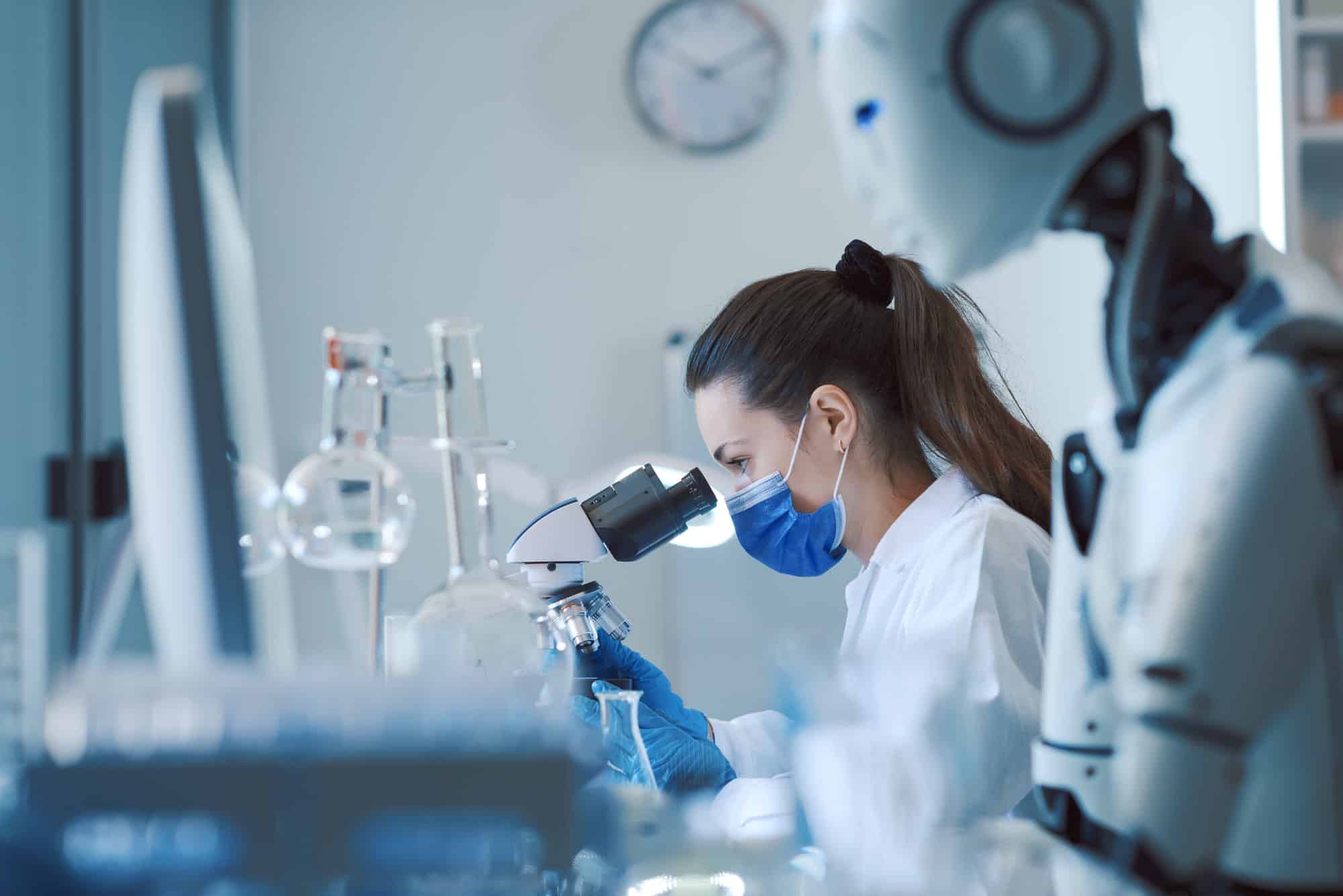As the world grapples with the reality of feeding an ever-growing population, the need for sustainable and efficient farming practices has never been more critical. The agricultural industry, traditionally known for being slow to adopt new technologies, is now experiencing a digital transformation. This trend is driven by the advent of Smart Farming techniques, which are sophisticated data-driven approaches to farming that utilise technology, including Artificial Intelligence (AI), to increase agricultural productivity while also preserving the environment.
In the UK, the farming industry is rapidly embracing these technologies as they seek to maintain their global competitiveness and meet the country’s increasing food demands. This article explores the opportunities that AI offers in enhancing UK Smart Farming techniques.
En parallèle : What Are the Effective Customer Retention Techniques for UK Online Gaming Platforms?
Incorporating AI into Precision Farming
Precision farming is a technique that allows farmers to manage their crops at an incredibly granular level. It is one of the cornerstones of Smart Farming, and it is here that AI is making a significant impact.
In precision farming, every inch of farmland is meticulously managed to ensure that plants are provided with exactly what they need for optimal growth, nothing more, nothing less. This precise approach reduces waste, saves time and money, and promotes environmental sustainability.
Avez-vous vu cela : Ecological solutions in marina construction
AI technologies, such as machine learning and computer vision, are used to gather and analyse a vast amount of data from various sensors placed throughout the farmland. This data includes information about soil conditions, weather patterns, and crop health. The AI then uses this data to make intelligent decisions about when to water, fertilise, or apply pesticides to the crops.
In the UK, farmers are using AI-powered drones and autonomous vehicles to collect data and perform tasks such as planting seeds, spraying pesticides, and harvesting crops. These AI technologies enable farmers to manage their farms more efficiently and effectively, leading to increased yields and reduced environmental impacts.
AI and Soil Management
Soil is the foundation of any farm. Its health determines the quality and quantity of the crops that it can produce. Therefore, effective soil management is a crucial aspect of smart farming.
AI can play a pivotal role in soil management. By analysing data from sensors in the soil, AI can monitor soil health in real-time, identifying issues such as nutrient deficiencies or disease before they become problematic. AI can also predict future soil conditions based on historical data and current weather patterns, allowing farmers to plan and prepare for different scenarios.
In the UK, several start-ups and research institutions are developing AI technologies for soil management. For instance, some AI systems are capable of predicting changes in soil condition and suggesting appropriate crop rotations, fertilisation strategies, and irrigation schedules.
AI and Crop Management
Crop management is another area where AI can significantly enhance smart farming techniques. AI can be used to monitor crops in real-time, identify diseases, and predict yield.
Through the use of drones equipped with AI and machine learning algorithms, farmers can monitor their crops’ health from above. These drones capture images of the crops, which are then analysed by the AI to identify any signs of disease, pests or stress. By identifying these issues early, farmers can take preventative action, save their crops, and minimise losses.
In the UK, AI is being used in greenhouses to monitor and control the growing conditions for crops. Sensors collect data on temperature, humidity, and light levels, and the AI uses this data to adjust the greenhouse conditions automatically. This optimisation of growing conditions results in healthier crops and higher yields.
Using AI for Data Management in Smart Farming
Data is the lifeblood of smart farming. It powers everything from precision farming techniques to soil and crop management. However, the sheer volume of data generated by smart farming practices can be overwhelming for farmers to manage and interpret.
AI comes in handy in managing and making sense of this data. AI can analyse and interpret vast amounts of data quickly and accurately, providing farmers with actionable insights in real-time. AI can identify patterns and trends in the data that could be overlooked by human analysis, leading to more informed decision-making.
Moreover, AI can also predict future trends and outcomes based on the data it analyses. This predictive capability allows farmers to anticipate problems and opportunities, enabling them to make proactive decisions about their farms.
The Future of AI in UK Smart Farming
The opportunities for AI in enhancing UK Smart Farming techniques are vast and exciting. The integration of AI into farming practices is revolutionising the way farmers manage their land, crops, and resources. As technology continues to advance, we can expect AI to play an even more prominent role in the future of UK farming.
One area with significant potential is the development of autonomous farming machinery. While we already see some use of autonomous vehicles in farming, future advancements in AI could lead to fully autonomous farms where machines perform all the agricultural tasks without human intervention.
AI also has the potential to further improve the predictive capabilities of smart farming. By analysing and learning from vast amounts of data, AI could predict future weather conditions, crop yields, and market trends with unprecedented accuracy. This could enable farmers to plan their activities with greater certainty, enhancing the efficiency and profitability of their farms.
The UK is well-positioned to lead the way in this AI-driven agricultural revolution. With its strong farming industry, world-class research institutions, and supportive government policies, the UK is at the forefront of integrating AI into smart farming.
AI in Sustainable Farming and the Supply Chain
Sustainable farming practices are becoming increasingly important, and artificial intelligence has the potential to play a crucial role in this area. AI can support the development of sustainable farming by enabling farmers to use resources more efficiently, reduce waste, and minimise environmental impacts.
First of all, AI can help farmers optimise their water usage by predicting the exact amount of water needed based on real-time data about weather conditions, soil moisture levels, and crop health. This not only helps to save water, a precious resource, but also prevents over-watering which can lead to nutrient leaching and other environmental issues.
Moreover, AI can support sustainable pest management practices. Using remote sensing technologies and machine learning algorithms, AI can identify pests and diseases early on, allowing farmers to target their pesticide use more precisely and reduce the overall amount of chemicals used.
In terms of the supply chain, AI can offer significant benefits here too. AI systems can analyse big data from the entire supply chain in real time, helping to improve efficiency and reduce waste. For example, AI can predict demand for different crops, helping farmers to plan their planting and harvesting schedules more accurately and avoid overproduction.
In the UK, agri-tech start-ups and research institutions are leading the way in developing AI technologies for sustainable farming and supply chain management. Through partnerships with farmers, these organisations are testing and implementing AI solutions that promise to transform the UK’s farming industry into a model of sustainability and efficiency.
Enhancing Decision Making Through Intelligence Agriculture
The complex and dynamic nature of farming means that farmers often have to make difficult decisions under uncertainty. Whether it’s deciding when to plant or harvest, which crops to grow, or how to manage pests, these decisions can have a significant impact on the success of the farm.
AI, with its ability to analyse vast amounts of data and make predictions, offers a powerful tool for supporting decision making in agriculture. This is sometimes referred to as intelligence agriculture – the use of AI and other digital technologies to inform and enhance decision making in farming.
One way that AI can support decision making is through precision farming. By providing accurate, real-time information about soil conditions, weather patterns, and crop health, AI enables farmers to make more informed decisions about how to manage their crops.
Another area where AI can assist is in predicting market trends. By analysing big data from various sources, including Google Scholar, AI can predict future price trends for different crops. This can help farmers make more informed decisions about what to plant and when to sell, enhancing their profitability.
In the UK, the use of AI in decision making is becoming increasingly widespread. Farmers are using AI-powered tools and platforms to manage their farms more effectively and make better-informed decisions.
Conclusion
In summary, AI presents numerous opportunities for enhancing smart farming techniques in the UK. From precision agriculture and crop management to sustainable farming and supply chain optimisation, AI is revolutionising farming practices in ways that promise to improve efficiency, sustainability, and profitability.
Moreover, the UK is well positioned to be a global leader in the AI-driven agricultural revolution. With its strong farming industry, world-class research institutions, and supportive government policies, the UK is at the forefront of integrating AI into smart farming. As AI continues to advance and become more accessible, we can expect to see even greater transformations in the farming industry.
Looking forward, the opportunities for AI in UK smart farming are boundless. Yet, the full potential of AI in agriculture can only be realised with continued investment in research and development, as well as ongoing collaboration between farmers, agri-tech companies, and research institutions. As we move towards a more sustainable and data-driven future, AI will undoubtedly play a crucial role in shaping the future of farming in the UK and beyond.











